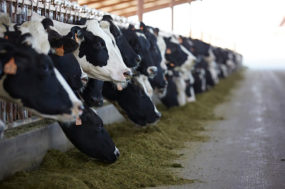This idea assumes everyone’s definition of sound judgement is the same. It also assumes everyone’s experiences that lead them to make decisions are the same.
Unfortunately, this is not usually the case; there are so many factors that play into our decision-making, including experience, culture and generation. Do you have the same common sense as your parents? What about your grandparents?
Please think about the following situation for a moment: Consider how fast you drive on the highway. The CBC did a study over a three-day period and found the average driver traveled at 120 kilometers per hour in a 100-kilometer-per-hour zone of the 401 Highway near Toronto. Now think about much you change your speed if it’s snowing. Do you now drive the speed limit, speed up to get home faster or slow down to adjust for the inclement weather?
Next, factor in experience: What if you were in an accident last winter in a snowstorm? What if you have never been in an accident? What if it is your first winter driving?
Would you react the same way if you had these three different experiences?
When you consider these experiences, it becomes a little easier to understand why the experiences of others can lead them to make a different decision than you might make.
It is important to actively encourage employees to think about safety at work and try to avoid relying on the idea of common sense to keep you and your employees safe.
If we accept that common sense really doesn’t exist, how do we keep everyone safe?
To overcome misconceptions about common sense:
- Do not assume everyone will make the same decisions you will make.
- Do not assume others know what to do in all situations.
- Ensure that information is given about the hazards in your workplace.
- Provide procedures and instructions as well as formal and informal training on how to do the job safely.
Training
Training is the best way to ensure safety on your dairy is top-of-mind for your team members. New employees should be trained on their first day of hire. All training should be recorded, and all documentation should be kept on file.
Ongoing training is also important, as it can be easy to fall into unsafe behaviours as individuals get comfortable in their job or are in a rush. Refresher safety training for the highest-risk items should be completed on an annual basis as well as any mandatory annual training required under your provincial health and safety legislation. Ongoing training also ensures work gets completed properly and does not leave employees to guess how they should be completing their jobs safely. ![]()
Cheryl DeCooman, CHRL, can also be reached at (519) 532-2508 or on Twitter and Instagram.
References omitted but are available upon request. Click here to email an editor.

-
Cheryl DeCooman
- President
- People Management Group
- Em








